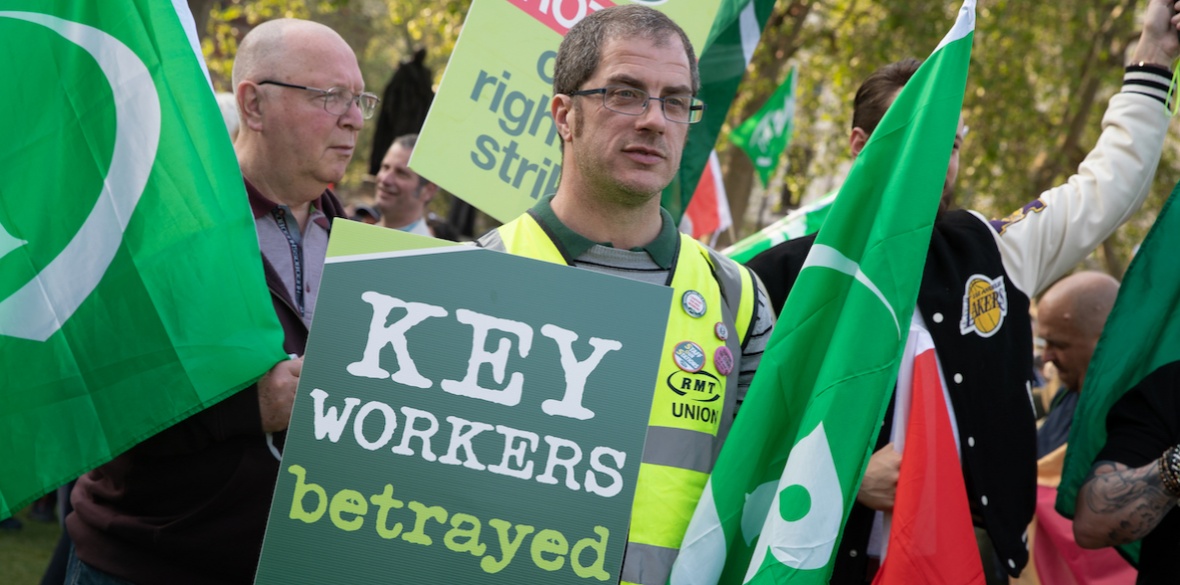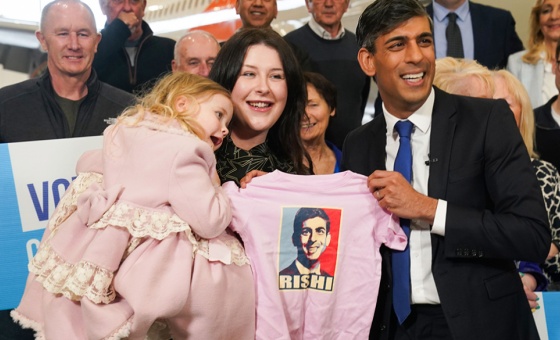WHAT links the Bank of England’s latest punitive interest rate rise and a Tory minister telling over-50s they should consider the exciting job opportunities at Deliveroo?
Both point to a co-ordinated ruling-class strategy to resolve Britain’s economic and social crisis through lowering living standards.
The Morning Star has called for the Bank of England to be stripped of its so-called independence and returned to public accountability, and this is essential: taking monetary policy out of democratic hands enshrines the rights of finance over those of the people, while entrenching the myth that economics is an objective science and not an ideological battleground.
But we should recognise that the main immediate benefit of such a shift would be in depriving ministers of a banker to hide behind. The bank’s strategy of raising interest rates repeatedly in the hope that demand collapses, possibly to the extent of causing a recession, is one shared by the Conservative cabinet.
Chancellor Jeremy Hunt admitted back in May that he was “comfortable” with the idea of a recession as a means of lowering inflation.
The following month one of his advisers — Karen Ward of JP Morgan Asset Management — declared that the Bank of England “have to create a recession” because “workers, when they’re a little bit less confident about their job, [will] think ‘Oh, I won’t push my boss for that higher pay’.”
Bank of England governor Andrew Bailey is following this strategy. Despite pro forma acknowledgements that inflation has international causes — and an occasional nod even to the grotesque profiteering by companies identified by unions like Unite, and even subsequently the International Monetary Fund, as a key driver — the bank continues to try to pin the blame on workers.
Bailey was at it again today, moaning that wages had risen by more than he expected (they continue to lag price rises, with British workers getting poorer faster in real terms that at any time on record).
In June, asked why Britain had higher inflation than the United States or the eurozone, he did not point to obvious factors such as cheaper energy (average energy costs in the US were around half those of Europe last winter, while decisions by countries like France to strictly limit how much companies could raise energy prices last year lowered inflation overall).
No, the difference was down to Britain’s “near record low unemployment” and a shrinking labour force because of older people who decided not to return to work after Covid.
If the labour market is too tight, it must be expanded: hence the push to get older people back into work, though admittedly ministers are scraping the barrel when they try to sell takeaway delivery for super-exploitative digital platforms as empowering jobs for older people.
These factors increased workers’ bargaining power and led to wages rising, Bailey explained.
This logic explains more or less everything about our rulers’ current strategy.
Keep hiking interest rates until businesses start to collapse and unemployment soars, creating downward pressure on pay.
Hold pay well below inflation across the public sector — and refuse even to discuss a plan to restore the value it has lost across most of the workforce over the last 13 years, since the long-term vision is for a Britain in which workers’ share of the pie is smaller.
Respond to the wave of industrial militancy in the public and private sectors through naked repression, most dramatically the Strikes (Minimum Service Levels) Act, which has just come into force and could be used with devastating effect to bankrupt unions and smash strikes.
The whole hangs together — and must be fought together.
Challenging the myth that pay rises are fuelling inflation is key to defeating the socially destructive policies being pursued with the overall aim of forcing pay down further and faster — and the war on democratic rights being waged to stop us fighting back.












